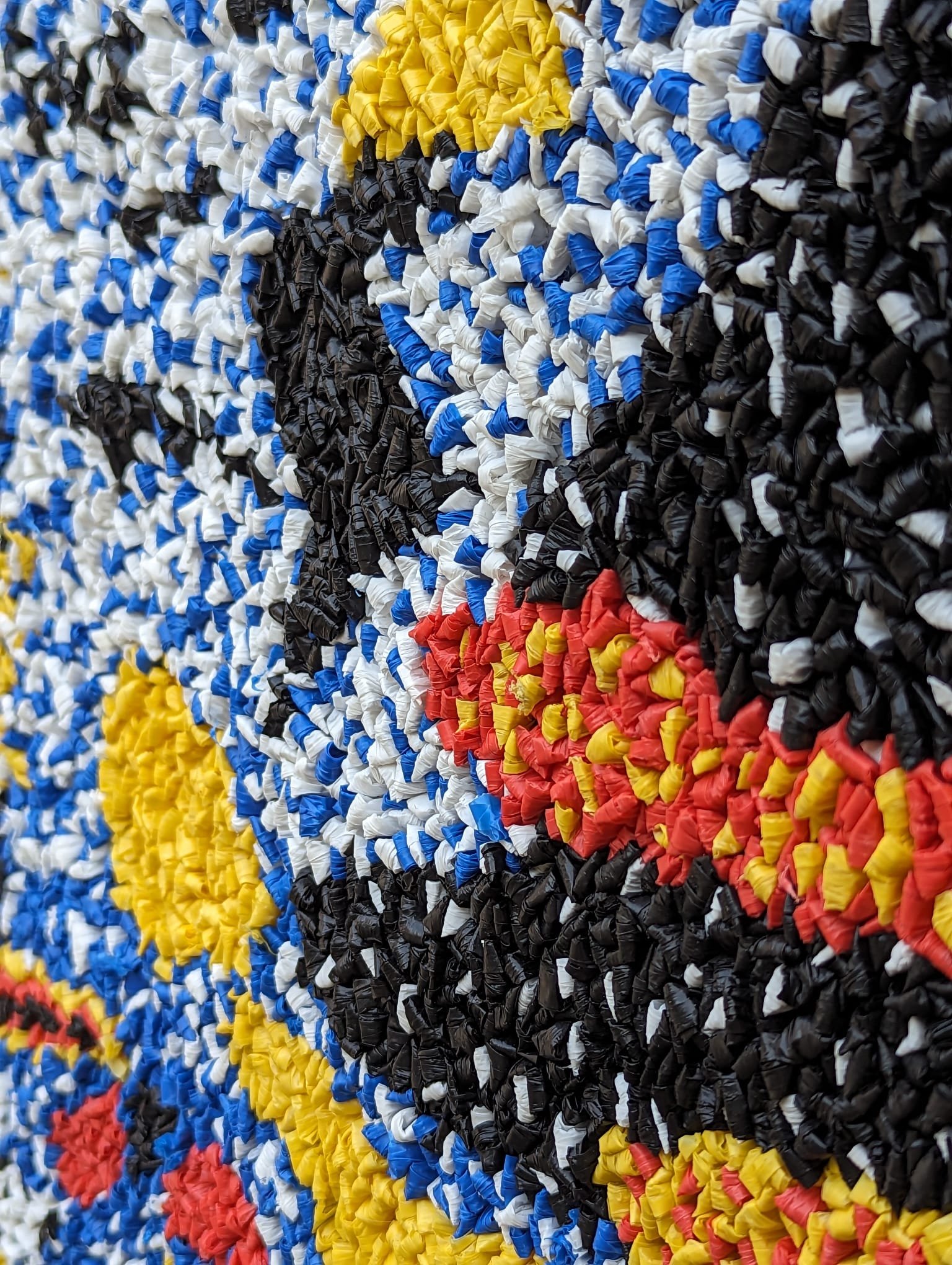eKIBBO
‘waste isn’t waste until you waste it.’
EKIBBO
~Basket
Our baskets, the perfect combination of ‘upcycling’ and ‘traditional Ugandan craftmanship’.
Ekibbo, meaning ‘basket’ in Luganda, is where our story began. Each basket is hand made by a woman from the Katanga Slum in Kampala. The baskets are 100% made out of single use plastic. By using plastic we prevent it from ending up in the enviroment, which decreases the waste problem.
But that’s not all! Each basket sold results in a fair income equilivent to a montly wage for the maker.
MASIKI
~Mask
Uganda is not really known for its cultural masks. The Ekibbo women are planning on changing that.
Again by using single use plastic, only this time we also add woven bags (cement bags, flour bags, sugar cane bags,…)as a base.
With small loops woven through the base, we create wall pieces shaped like a colorful mask.
Ekiwempe
~Tapestry
Ekiwempe is a product that brings the technique from ‘Masiki’ to the next level. Not only the technique evolved but also the size increased.
Ekiwempe is an fragmented wall tapestry that can be united or seperated. The buyer decides if they want One piece, all pieces or everything in between. When united the full picture will appeare but all pieces are an abstract picture by themself.
Team Ekibbo is proud to announce that we are 1 of the 10 selected finalists for the BKRK-award 2023. For this award we created a new product called EKIWEMPE.
EKIWEMPE is an artwork made in Katanga, the largest slum in Kampala, Uganda.
A complete EKIWEMPE depicts the image of houses around the slum’s open sewer and the women carrying out their daily activities. There is no proper waste management in the slum, and all waste is thrown on the ground, saturating the soil with plastic, making it impermeable. As a result, with every rainfall, water enters their houses and damages the scarce belongings of the residents.
People in the slum are impoverished as there is little to no employment opportunities within Katanga. The rare activities a woman can engage in within the slum, such as peeling beans, only earn them 1000 Ugandan Shillings (€0.30) per day, which is not enough to make a living.
By working for EKKIBO, they can create products in their own homes, at their own pace, and with their own creativity, using readily available materials (plastic bags and woven (flour or sugar cane) bags) and minimal tools (scissors, needle, crochet hook).




